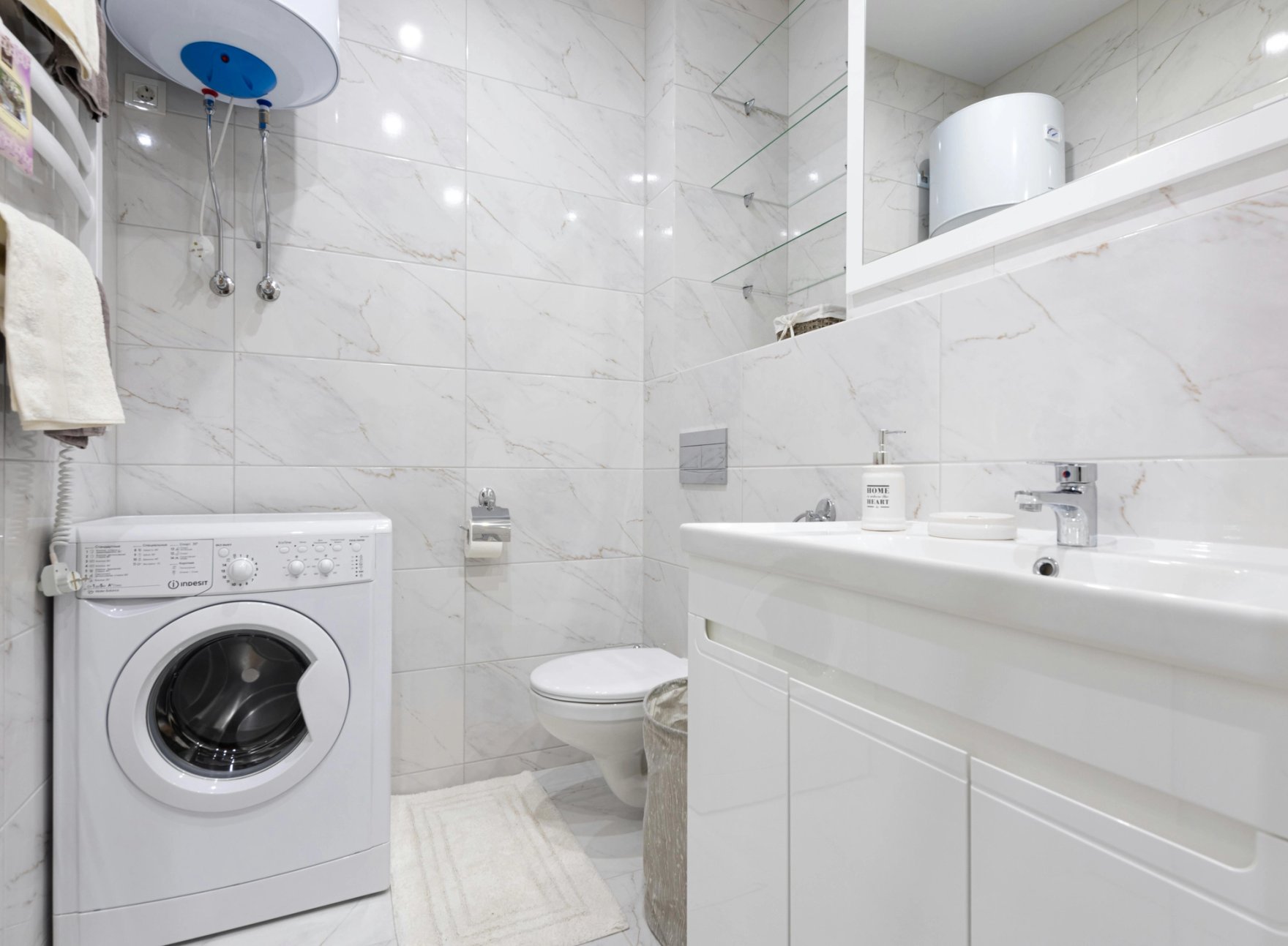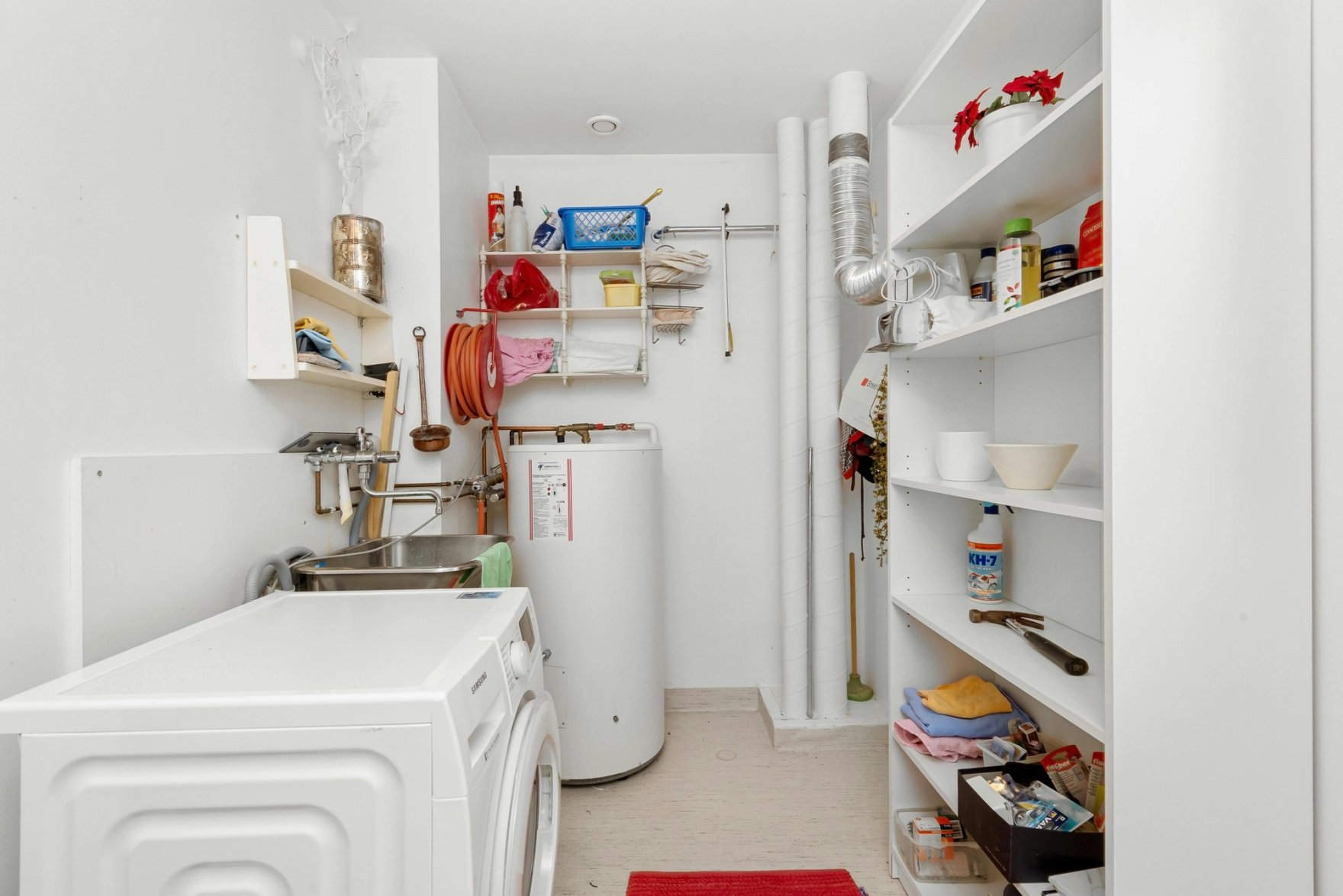
Electric water heaters are an essential appliance for many households, offering a reliable source of hot water. With technological advancements constantly being made, the debate over gas vs. electric water heaters is more relevant than ever. We’re going to explore the benefits of electric water heaters, including electric hot water tanks, and the way they can be paired with other eco-conscious energy options like community solar.
Types of Electric Water Heaters
There are different types of electric water heaters on the market. They all offer different features to align with household needs. Here are the primary types of water heaters you’re likely to see.
Storage (Tank) Water Heaters
Storage electric water heaters, also known as electric hot water tanks, are the most common type of electric water heater. They consist of a tank that stores the hot water so that it is ready to be used when it is needed. These hot water tanks are constantly heated to maintain a set temperature and come in a range of different sizes, typically between 20 and 80 gallons, to accommodate different household needs.
Pros of Storage Water Heaters:
Reliable hot water supply: storage water heaters provide a steady supply of hot water because the water is preheated and stored.
Low upfront cost: storage water heaters are typically less expensive to purchase and install.
Size range: there are a range of tank sizes available to effectively meet household needs.
Cons of Storage Water Heaters:
Energy efficiency: The tank is constantly heated, using energy even when the hot water isn’t being consumed, leading to standby heat loss
Size limitations: Storage water heaters can require a significant amount of space for installation due to their size.
Tankless Water Heaters
Tankless electric water heaters heat water on demand, only when needed. This eliminates the need for a storage tank and is generally more energy-efficient because the temperature doesn’t need to be constantly maintained.
Pros of Tankless Water Heaters:
Energy efficiency: Tankless water heaters only heat water when needed, reducing energy consumption and utility costs.
Unlimited hot water: Because there is no tank, you don’t run out of hot water, making tankless water heaters ideal for households with higher hot water needs.
Space: Tankless water heaters are smaller because they don’t require a storage tank.
Cons of Tankless Water Heaters:
Upfront Cost: Tankless water heaters are more expensive to purchase and install, though they can yield greater utility savings.
Installation: The installation of a tankless water heater might require upgrades to electrical systems or gas lines, driving up the installation cost.
Heat Pump Water Heaters
Heat pump water heaters are highly energy-efficient and work by moving heat from the surrounding area to the water tank using a heat pump. They use less electricity than traditional water heaters; however, they are typically better suited for warm climates.
Pros of Heat Pump Water Heaters:
Energy efficiency: heat pump water heaters use heat from the surrounding environment, thereby consuming less electricity
Operational costs: the energy efficiency of heat pump water heaters can also reduce electricity bill costs over time
Eco-friendly: there are fewer greenhouse gas emissions associated with heat pump water heaters.
Cons of Heat Pump Water Heaters:
Upfront cost: they can be more expensive to purchase and install than other types of water heaters
Climate-dependent: because they draw heat from their environment, heat pump water heaters may be less effective in colder climates but more effective in warm climates.
Point-of-Use Water Heaters
Point-of-use electric water heaters are small, compact units that provide hot water to a specific location, such as a sink or shower. They are ideal for areas that are far from the main water heater, reducing the wait time for hot water. Point-of-use heaters can be either tankless or small tank models, depending on the needs of the space.
Pros of Point-of-Use Water Heaters:
Convenience: Point-of-use water heaters deliver hot water virtually instantly, reducing water waste and wait time.
Energy efficiency: Point-of-use water heats only heat water on demand for a specific area, reducing energy waste.
Compact design: point-of-use water heaters are small and easy to install under sinks or other water outlets.
Cons of Point-of-Use Water Heaters:
Limited capacity: Point-of-use water heaters are typically not an effective way to provide hot water to the whole household
Higher cost per unit: Individual point-of-use water heaters are more affordable; however, they can become costly if installed in multiple areas of the home
Why Choose an Electric Hot Water Heater
Water heaters can contribute to the overall energy efficiency of your home and your average utility costs. Opting for an electric water heater can offer several advantages.
What are the Benefits of an Electric Hot Water Heater?
- Energy Efficiency: Typically, electric water heaters are more energy-efficient because they convert most of the energy they use into heat. Unlike a gas heater, which can lose heat through ventilation, an electric water heater keeps energy waste to a minimum.
- Installation Flexibility: Because electric hot water heaters don’t require a gas line, they can be installed in more locations, offering homeowners more flexibility.
- Environmental Impact: Electric hot water heaters do not produce direct emissions, making them a greener option when compared to gas heaters.
- Lower Upfront Costs: Electric hot water tanks are often less expensive to install than gas systems. They also come in various sizes, making them a versatile option for small or large homes.
- Safety: Without combustion or the risk of gas leaks, electric water heaters are generally considered safer than gas water heaters.
Electric vs. Gas Water Heaters
Both gas and electric water heaters serve the same basic function. However, their energy sources and operational costs differ. A gas water heater typically heats water faster, but an electric water heater, particularly an electric hot water tank, can maintain the heat longer due to insulated designs. Over time, the energy savings from a more efficient electric model can offset its slower heating time, especially if paired with renewable energy.
Pairing an Electric Water Heater with Community Solar
To further reduce your carbon footprint and see even greater savings, try pairing electric water heaters with renewable energy sources like community solar. Community solar allows homeowners, renters, and businesses to support solar and realize electricity cost savings without installing panels on their property. When you combine this with an energy-efficient electric hot water heater, the financial and environmental benefits add up quickly.

When choosing between a gas or electric water heater, the long-term benefits of electric hot water heaters far outweigh those of gas, making them a smart and sustainable choice. These systems offer flexibility, safety, and cost savings, all while helping you reduce your carbon footprint. As a bonus, try pairing an electric hot water heater with community solar for even greater savings and carbon footprint reduction!